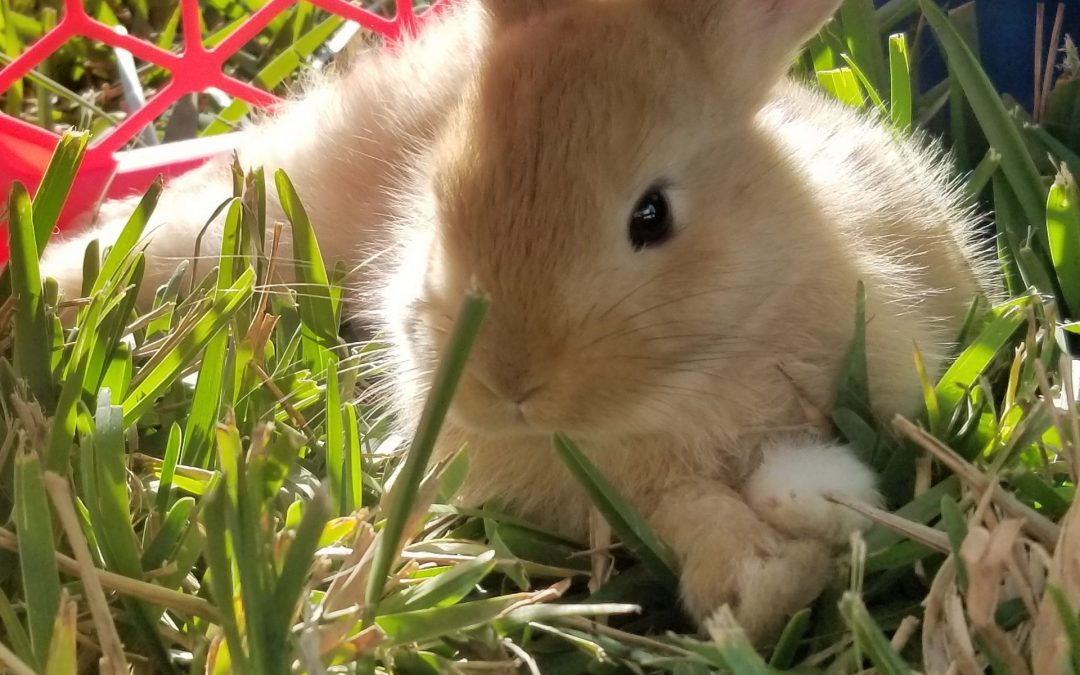A rabbit’s diet should consist mostly of hay, such as timothy hay. Hay should be available to the rabbit at all times, as it helps wear down their teeth, keeps their digestive system healthy, and provides important nutrients. Fresh vegetables can be offered as a supplement to hay. Good options include dark leafy greens, such as romaine lettuce, kale, and parsley, as well as vegetables such as carrots, bell peppers, and peas (in moderation). It’s important to gradually introduce new vegetables to your rabbit’s diet to give their digestive system time to adjust. Avoid giving your rabbit vegetables that are high in sugar or starch, such as beans, corn, or potatoes. A small amount of pellets (no more than 1/4 cup per 5 lbs of body weight) can be offered as a supplement to hay and vegetables. Choose a brand that is specifically formulated for rabbits and avoid ones that contain seeds or nuts. Fresh, clean water should be available to the rabbit at all times. It’s important to monitor your rabbit’s food intake and body condition, as an unhealthy diet can lead to serious health problems.
Hay
Hay is an essential part of a rabbit’s diet, and it should be available to them at all times. In addition to providing important nutrients, hay helps wear down a rabbit’s constantly growing teeth and keeps their digestive system healthy. There are different types of hay available, such as timothy hay, oat hay, and brome hay. Timothy hay is a popular choice for adult rabbits, as it has a good balance of nutrients. Oat hay is higher in protein and calories and is often fed to growing rabbits or rabbits that are underweight. Brome hay is a good choice for rabbits with sensitive stomachs. It’s important to choose high-quality hay that is fresh and free from mold or dust.
Snacks
In addition to hay and vegetables, you can offer your rabbit a few healthy snacks as a treat. Some good options include a small amount of fresh fruit (such as apple slices or blueberries), a small handful of unsalted, unseasoned raw nuts or seeds (such as almonds or sunflower seeds), or a small amount of plain, unsweetened dried fruit (such as apricots or cranberries). It’s important to keep snack time to a minimum, as treats should only make up a small portion of your rabbit’s diet. It’s also important to avoid giving your rabbit treats that are high in sugar, salt, or artificial additives, as these can be harmful to their health.
Summary
- A rabbit’s diet should consist mostly of hay, such as timothy hay. Hay is an essential part of a rabbit’s diet and should be available to them at all times. Timothy hay is a good choice for adult rabbits. Oat hay is higher in protein and calories and is often fed to growing rabbits or rabbits that are underweight. Brome hay is a good choice for rabbits with sensitive stomachs.
- Fresh vegetables can be offered as a supplement to hay. Good options include dark leafy greens and vegetables such as carrots, bell peppers, and peas (in moderation). Avoid vegetables that are high in sugar or starch.
- A small amount of pellets can be offered as a supplement to hay and vegetables. Choose a brand that is specifically formulated for rabbits and avoid ones that contain seeds or nuts.
- Fresh, clean water should be available to the rabbit at all times.
- It’s important to monitor your rabbit’s food intake and body condition.
- Healthy snacks that can be offered as treats include a small amount of fresh fruit, a small handful of raw nuts or seeds, or a small amount of plain, unsweetened dried fruit. Avoid treats that are high in sugar, salt, or artificial additives. Snack time should be kept to a minimum.

